Becoming familiar with terms used by lesbian, gay, bisexual, transgender, queer, intersex, asexual, and other sexual and gender minorities (LGBTQIA+) can help you provide patients with the highest quality care. In this glossary, you will find terms relevant to the health care and identities of LGBTQIA+ people.
Gender-affirming Pediatric Care Toolkit

Gender-affirming Pediatric Care Toolkit
Transgender and gender diverse (TGD) children, adolescents, and their families are increasingly seeking out pediatricians and mental health providers for education, treatment, and services related to gender-affirming care. TGD children, adolescents, and their families are looking for care that is welcoming, affirming, and safe. However, due to a lack of training and information about providing gender-affirming care, providers may feel unprepared to offer this level of care to children and adolescents in TGD communities. This toolkit is a curated list of resources created by the National LGBTQIA+ Health Education Center to aid medical and behavioral health providers who are either starting on their journey in gender-affirming care for TGD youth or are looking to refresh or further their learning and understanding of creating safe, supportive, affirming health care experiences for TGD children and adolescents. We hope this toolkit can serve more than just pediatricians and behavioral health specialists, but also all healthcare staff who may work directly with youth, or determine policies and practices related to the care of TGD children and adolescents.
This toolkit is a curated list of resources organized by topic area to allow users to focus on specific topics. To access a section, click the section title, the picture next to the section title, or the text that says “expand” under the section title. To collapse a section without expanding another section, click on the text that says “collapse” under the heading. To collapse a section and expand another section, simply click the title, image, or “expand” text under the section you wish to expand.
How to use this toolkit
You may use the entire toolkit from start to finish or jump to a section that is relevant to you. When you click on a resource, you will find that it pops up on your screen; if you would like to navigate out, simply click anywhere on your screen to return to the toolkit. When you choose to access a resource, it will open in a new tab. To navigate back to the toolkit, simply exit out of the resource page or click the toolkit tab in your browser.
Disclaimer
The toolkit has external resources from reputable organizations that are relevant to providing different aspects of gender-affirming care for children and adolescents. While we have linked to these resources, The National LGBTQIA+ Health Education Center is not responsible for any advertisements or other content that you may see on the resource page. If you have any questions about a resource in the toolkit, please email us at [email protected].
Foundational Concepts and Terminology
We all have to start somewhere! The resources provided under foundational concepts and terminology are curated for providers who are starting off on their journey, or needing a quick refresher. The resources here can help you understand core language, ideas, and health needs of TGD children and adolescents, and how to address these needs through practices like implicit bias training and trauma-informed care. If you don’t know where to start, this section is for you!
LGBTQIA+ Glossary of Terms for Health Care Teams 2020

LGBTQIA+ Glossary of Terms for Health Care Teams 2020
LGBTQIA+ Glossary of Terms for Health Care Teams
- Filed under
- Introduction to LGBTQIA+ Health
Trans Lifeline – Glossary of Terms & Definitions
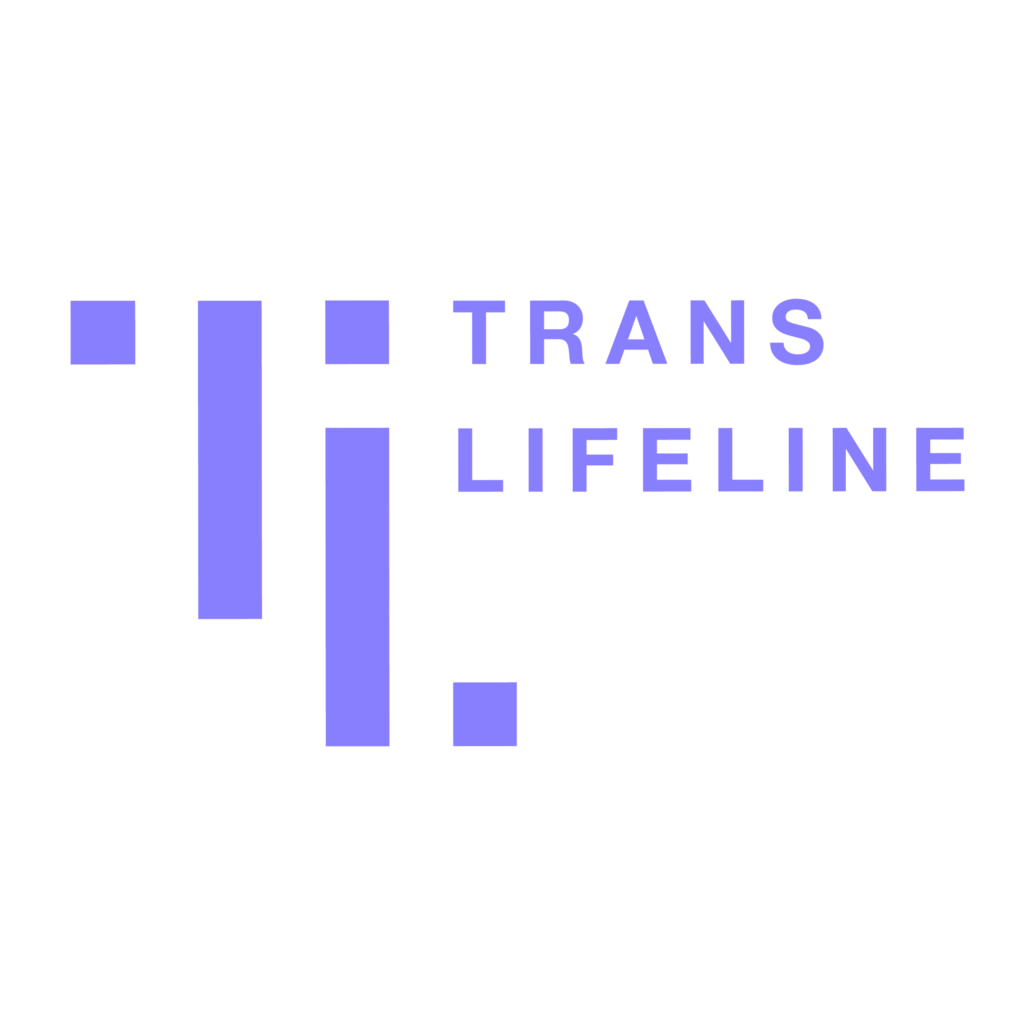
Trans Lifeline – Glossary of Terms & Definitions
This resource from Trans Lifeline is a more indepth glossary LGBTQIA+ terminology with more information related transgender and gender diverse people and gender-affirming medical interventions.
- Filed under
- Patient Education Materials
- Transgender Health
Health Disparities, Stigma and Terminology
Health Disparities, Stigma and Terminology
In this talk from the 2020 Advancing Excellence in Transgender Health conference, Dr. Reisner covers basic terminology and discusses health disparities and stigma that transgender and gender-diverse people face.
Developmental Approaches to Care for Transgender and Gender-diverse Youth and Adolescents
Developmental Approaches to Care for Transgender and Gender-diverse Youth and Adolescents
Improving Mental Health Outcomes for Transgender and Gender Diverse (TGD) Youth through Gender-affirming Care
In this talk from the 2020 Advancing Excellence in Transgender Health conference, Dr. Forcier covers pediatric and adolescent gender development and walks through some patient narratives. The cases review emerging topics and recent papers to increase ability to serve youth in an evidenced based trans-affirmative model.
- Filed under
- LGBTQIA+ Children and Youth
- Transgender Health
Trauma-Informed Care for Trans and Gender-Diverse Individuals [Fall 2020]
Trauma-Informed Care for Trans and Gender-Diverse Individuals [Fall 2020]
Trauma-Informed Care for Trans and Gender-Diverse Individuals
In this talk from the 2020 Advancing Excellence in Transgender Health conference, Dr. Potter discusses components of trauma-informed care for transgender and gender-diverse clients.
- Filed under
- Behavioral Health
- Transgender Health
Addressing Implicit and Unconscious Bias
Addressing Implicit and Unconscious Bias
Addressing Unconscious and Implicit Bias
In this talk from the 2020 Advancing Excellence in Transgender Health conference, Cei Lambert focuses particularly on provider bias and power dynamics and how bias shows up for transgender and gender-diverse clients.
- Filed under
- Organizational Change
- Transgender Health
Primary Care and Preventative Health Needs for Transgender and Non-Binary People [2020]
Primary Care and Preventative Health Needs for Transgender and Non-Binary People [2020]
Primary and Preventative Health Needs for Transgender People
In this talk from the 2020 Advancing Excellence in Transgender Health conference, Dr. Deutsch covers primary care and preventative health needs for transgender and non-binary people.
Affirmative Services for Transgender and Gender Diverse People – Best Practices for Frontline Health Care Staff
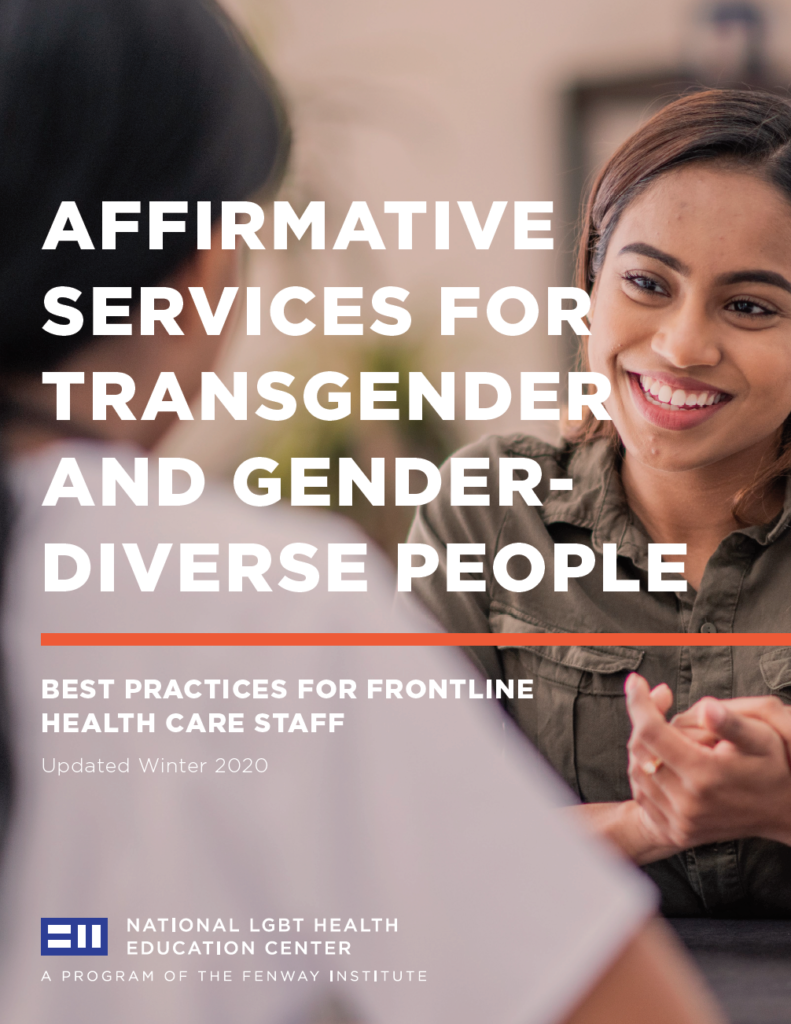
Affirmative Services for Transgender and Gender Diverse People – Best Practices for Frontline Health Care Staff
This publication provides best practices and guidance for frontline healthcare staff on how to best serve transgender and gender diverse patients. Topics covered include gender affirming language, asking about sexual orientation and gender identity data, asking for name and pronouns used, and more. The publication features a quick-reference sheet that can be removed and posted in a workspace.
Social Gender Affirmation
When people think about gender-affirming care, there is often a focus on the medical aspects of gender-affirmation. However, for many TGD people, social gender affirmation, which can include changes to name, pronouns, hairstyle, and voice, is the first and perhaps only method of gender affirmation that they seek. This section includes resources on non-medical gender affirmation, such as binding, tucking, and voice modification.
Non-Medical Gender Affirmation
Non-Medical Gender Affirmation
In this talk from the 2020 Advancing Excellence in Transgender Health conference, Steph DeNormand discusses the variety of non-medical, non-surgical ways in which transgender and gender-diverse people affirm their gender. This includes the many techniques and tools TGD people may use, as well as important health information for all members of the care team to know.
- Filed under
- Transgender Health
Binding Resources
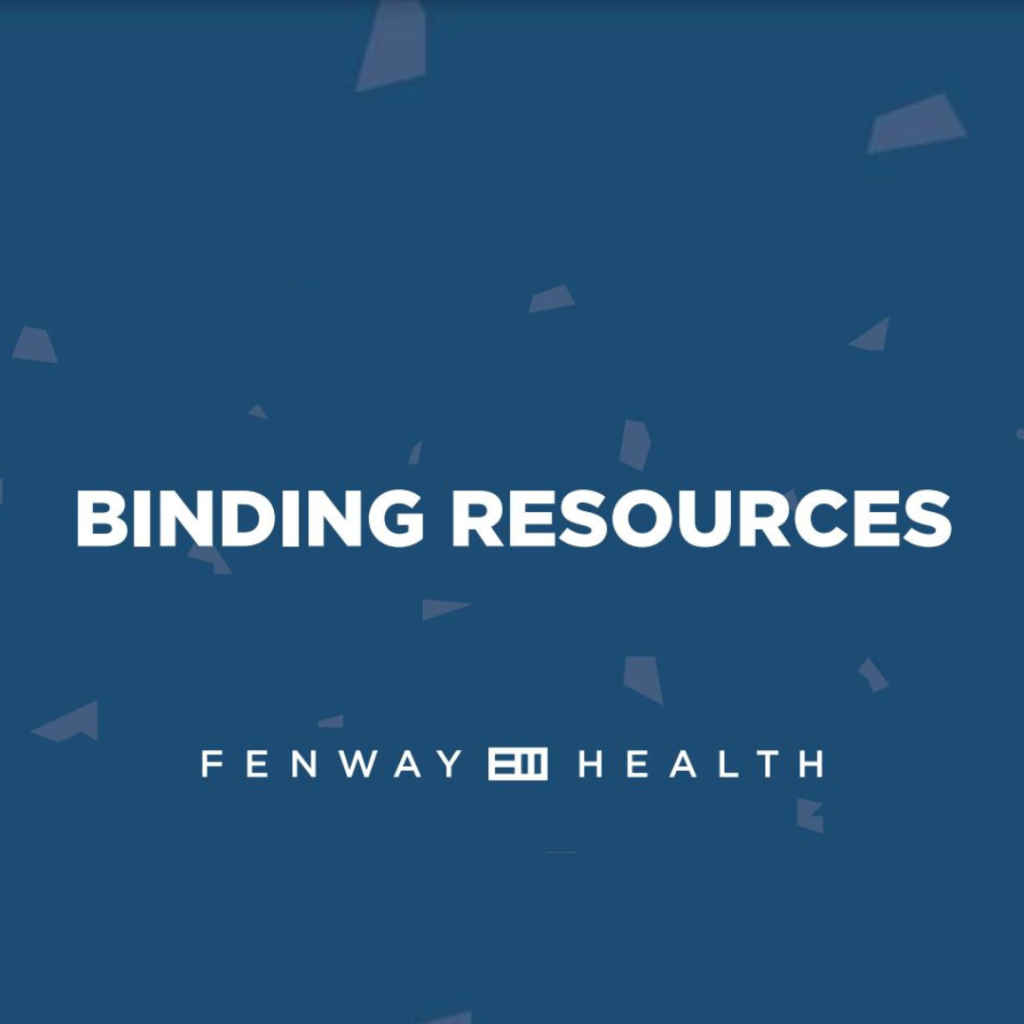
Binding Resources
This resource from Fenway Health provides links to sites that detail how to wear binders, sites that patients can use to purchase binders and answers to important questions about binding and safety.
- Filed under
- Patient Education Materials
- Transgender Health
Callen-Lorde – Safer Tucking

Callen-Lorde – Safer Tucking
This short resource by Callen-Lorde, provides information about tucking, the practice meant to create a smooth appearance for people with penises. This guide also provides information on safe tucking practices and the description and price of different tucking methods.
- Filed under
- Patient Education Materials
- Transgender Health
Callen-Lorde – Finding Your Voice: A Short Guide to Vocalization

Callen-Lorde – Finding Your Voice: A Short Guide to Vocalization
This short guide by Callen-Lorde provides information for patients about voice modification so patients may achieve a more feminine or masculine voice with out surgery or hormone therapy.
- Filed under
- Patient Education Materials
- Transgender Health
Trans Lifeline – Social Transition Resources

Trans Lifeline – Social Transition Resources
This resource list by Trans Lifeline is a page that links to resources and guides that are helpful to trans and gender diverse people who are looking for information and tools to aid them in their gender expression. This includes information and websites that link to items that can help with packing, padding, binding, and other measures that allow trans and gender diverse people to maintain the external expression that is the most affirming to them.
- Filed under
- Patient Education Materials
- Transgender Health
Navigating the Legal Needs of Transgender and Gender Diverse Youth
TGD children and adolescents may face discrimination in employment and education, which can affect their health and wellbeing. Therefore, patients may need legal services to address the institutional and societal abuses that impact their health. This section provides information on forming medical-legal practices as well as information on name and gender marker changes on identity documents, a legal aspect of social gender affirmation, that can be integral to a patient’s ability to feel safe and affirmed in their identity.
Fact Sheet: Transgender Health and Medical-Legal Partnerships
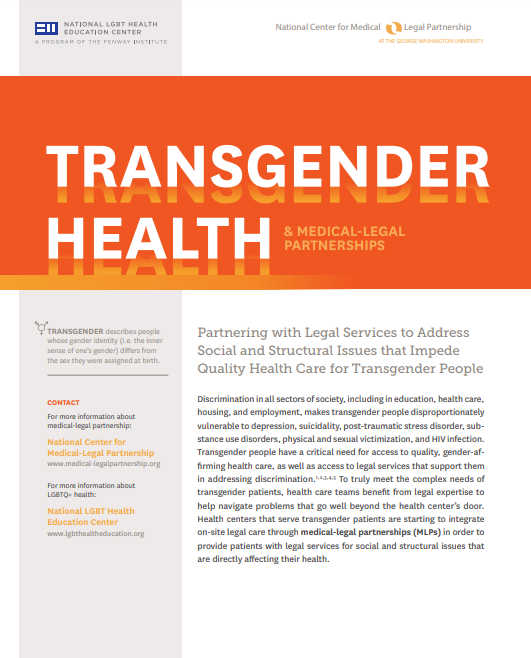
Fact Sheet: Transgender Health and Medical-Legal Partnerships
This fact sheet describes common social and legal needs that affect the health of transgender individuals, and ways integrated legal services can help meet those needs. It examines medical-legal partnership programs at three health care organizations and how they operate, and it shares stories of people benefiting from medical-legal partnership services.
- Filed under
- Organizational Change
- Transgender Health
What Health Care Providers Need to Know About Transgender Legal Issues
What Health Care Providers Need to Know About Transgender Legal Issues
What Providers Need to Know about Trans Legal Issues
In this talk, Noah Lewis discusses legal issues that transgender people face and how health care providers play an important role in connecting patients to needed legal services including health insurance, employment, housing and education, and obtaining accurate identity documents.
This session was originally presented as a part of Fenway Health's Fourth Annual Advancing Excellence in Transgender Health Conference, which took place September 21-23, 2018.
CME/CEU: This webinar has been reviewed and is acceptable for up to 1.0 Prescribed credits by the American Academy of Family Physicians. Participants should claim only the credit commensurate with the extent of their participation in the activity.
- Filed under
- Transgender Health
Movement Advancement Project (MAP) – Identity Document Laws and Policies
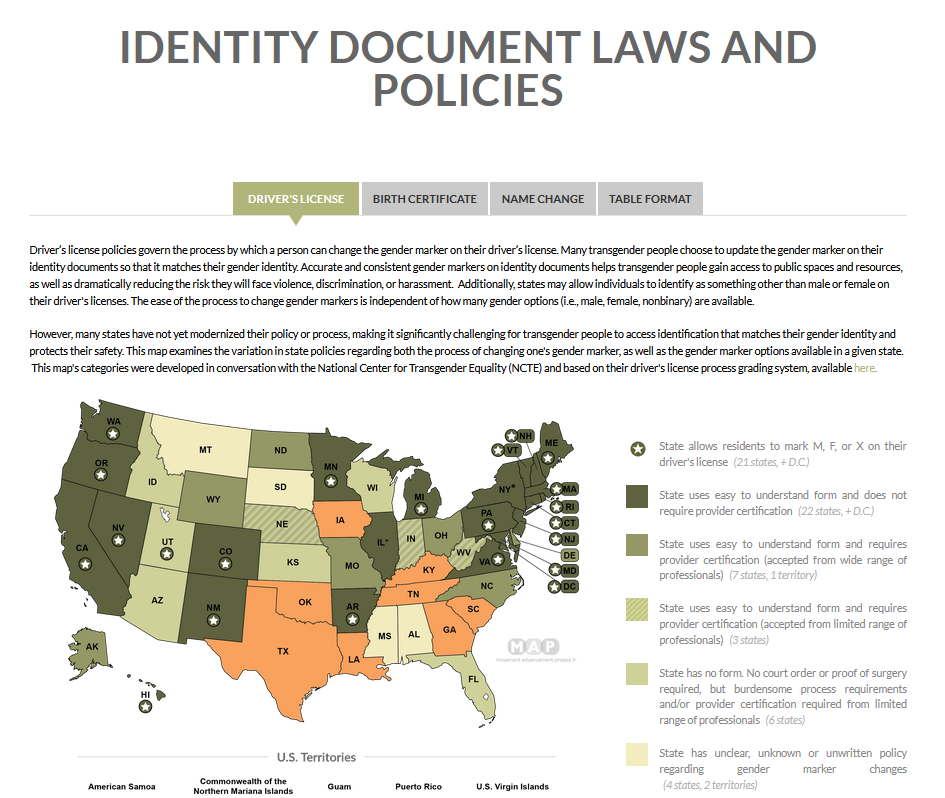
Movement Advancement Project (MAP) – Identity Document Laws and Policies
MAP's website outlines the laws and policies related to name and gender marker change on driver’s licenses and birth certificates.
- Filed under
- Patient Education Materials
- Transgender Health
National Center for Trans Equality – Trans Legal Services Network Directory
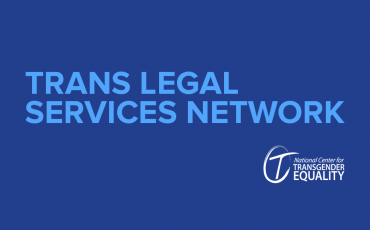
National Center for Trans Equality – Trans Legal Services Network Directory
The National Center for Trans Equality has created a comprehensive state-by-state guide that provides information about law firms and attorneys that provide legal services to transgender and gender diverse people.
- Filed under
- Patient Education Materials
- Transgender Health
National Center for Trans Equality – Trans Equality: Know Your Rights in Health Care
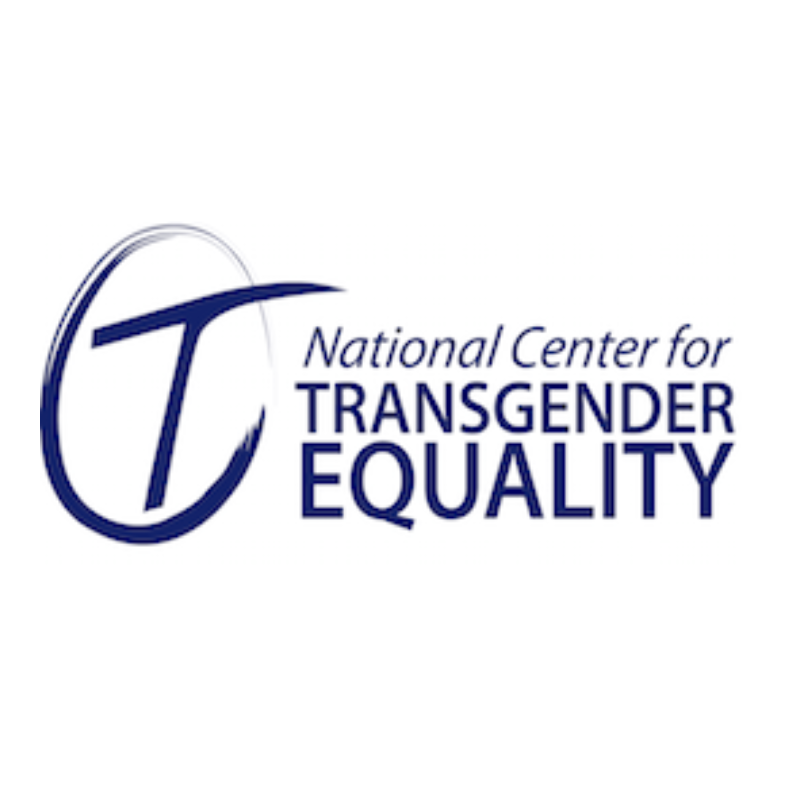
National Center for Trans Equality – Trans Equality: Know Your Rights in Health Care
- Filed under
- Patient Education Materials
- Transgender Health
Transgender Legal Services and Medical-Legal Partnerships

Transgender Legal Services and Medical-Legal Partnerships
Transgender people have unprecedented access to medical care, but pervasive health disparities persist. Widespread discrimination in health insurance, employment, housing and education, and barriers to obtaining accurate identity documents continue to undermine the health of transgender people. Health care providers play an important role in connecting patients to needed legal services. This can be effectively accomplished through integrated services of a medical-legal partnership that specifically meets the needs of transgender patients.
- Filed under
- Transgender Health
Transgender Law Center – ID Please: Quick Guide to Updating Federal Identity Documents
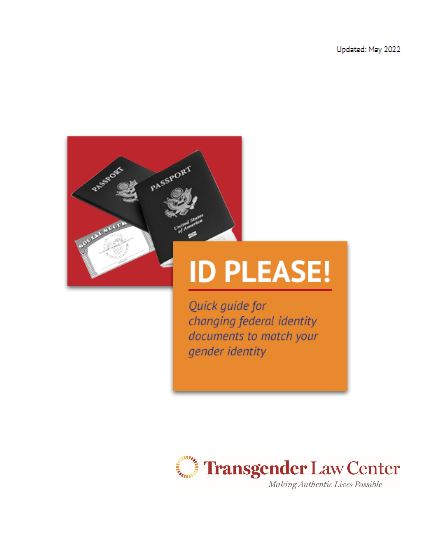
Transgender Law Center – ID Please: Quick Guide to Updating Federal Identity Documents
This is the quick-guide version of our comprehensive resource, ID Please: A Guide to Changing California & Federal Identity Documents to Match Your Gender Identity. This quick guide includes the information you need for changing records with the Social Security Administration, passports, and documents issued by U.S. Citizenship and Immigration Services.
- Filed under
- Patient Education Materials
- Transgender Health
Trans Lifeline – ID Change Library

Trans Lifeline – ID Change Library
Trans Lifeline created this living library to provide information on the processes and fees related to changing names and gender markers on identification documents from the federal to county level. The documents featured include tribal IDs, immigration documents, military documents, and name changes for people with previous criminal records.
- Filed under
- Patient Education Materials
- Transgender Health
Gender-affirming Medical Care
Gender-affirming care is patient-centered care that aims to support TGD patients on their journey to align their primary and secondary sex characteristics with their gender identity. This section highlights key aims to provide knowledge on important aspects of medical gender affirmation, such as pubertal suppressants, hormone therapy, and surgical interventions that TGD children, adolescents, and their families may have questions about and choose to embark on at appropriate developmental stages.
Gender-Affirmative Health Care
Gender-Affirmative Health Care
In this talk from the 2021 Advancing Excellence in Transgender Health conference, Dr. Reisner provides an overview on gender-affirmative health care, including terminology, demographics and epidemiology.
Healthcare for Transgender and Gender Diverse People
Healthcare for Transgender and Gender Diverse People
This module will guide learners through the basics of health care for transgender and gender diverse people. Participants will learn terminology, demographics and health disparities along with gender affirmation care and treatment.
Affirmative Services for Transgender and Gender Diverse People – Best Practices for Frontline Health Care Staff

Affirmative Services for Transgender and Gender Diverse People – Best Practices for Frontline Health Care Staff
This publication provides best practices and guidance for frontline healthcare staff on how to best serve transgender and gender diverse patients. Topics covered include gender affirming language, asking about sexual orientation and gender identity data, asking for name and pronouns used, and more. The publication features a quick-reference sheet that can be removed and posted in a workspace.
Providing Affirmative Care for Patients with Non-binary Gender Identities
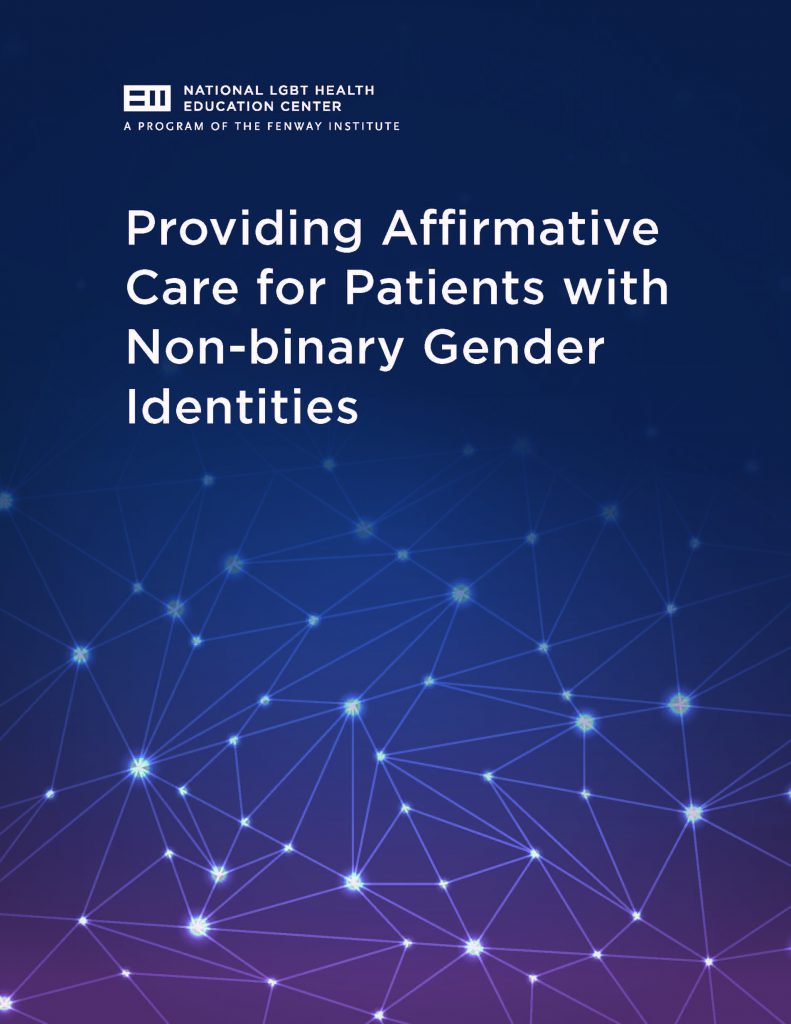
Providing Affirmative Care for Patients with Non-binary Gender Identities
All members of a health care organization—front-line staff members, clinicians, and administrators—play a crucial role in offering an inclusive, affirming experience for all people, including those with non-binary gender identities. Everyone, no matter their gender identity or expression, appreciates friendly, courteous, and effective care. In addition, non-binary people, who have gender identities other than male or female, have unique needs when interacting with the health care system. Non-binary people face numerous health disparities as well as stigma, discrimination, and a lack of access to quality care. However, you do not need to specialize in non-binary health care to give your non-binary patients an affirming experience.
This document includes important terms and definitions, data, three case scenarios, and expert-informed practices, all of which offer suggestions for how any staff member within any health care organization can implement simple changes to improve the experiences of patients with non-binary gender identities.
Puberty Blockers and Hormone Therapy for Gender Diverse Youth and Adolescents [2020]
Puberty Blockers and Hormone Therapy for Gender Diverse Youth and Adolescents [2020]
Puberty Blockers and Hormone Therapy for Gender Diverse Youth and Adolescents
In this talk from the 2020 Advancing Excellence in Transgender Health conference, Dr. Carswell discusses puberty blockers and hormone therapy for transgender and gender-diverse youth and adolescents.
- Filed under
- LGBTQIA+ Children and Youth
- Transgender Health
Gender-Affirming Hormone Therapy: Estrogen, Anti-Androgens, and Progesterone [2020]
Gender-Affirming Hormone Therapy: Estrogen, Anti-Androgens, and Progesterone [2020]
Gender-Affirming Hormone Therapy: Estrogen, Anti-Androgens, and Progesterone
In this talk from the 2020 Advancing Excellence in Transgender Health conference, Julie Thompson discusses estrogen, anti-androgens and progesterone use.
- Filed under
- Transgender Health
Gender-Affirming Hormone Therapy: Testosterone
Gender-Affirming Hormone Therapy: Testosterone
In this talk from the 2021 Advancing Excellence in Transgender Health conference, Julie discusses the use of testosterone with transgender and gender-diverse patients.
- Filed under
- Transgender Health
Multidisciplinary Approaches to Supporting Whole Person Gender Affirming Perioperative Health and Care (2020)
Multidisciplinary Approaches to Supporting Whole Person Gender Affirming Perioperative Health and Care (2020)
In this talk from the 2020 Advancing Excellence in Sexual and Gender Minority Health conference, Dr. Madeline Deutsch reviews key factors in gender-affirming surgeries, including WPATH surgery clearance, holistic perioperative approaches, and potential complications. Dr. Deutsch also uses case-based learning to answer common questions and concerns.
- Filed under
- Transgender Health
WPATH Standards of Care, v. 7
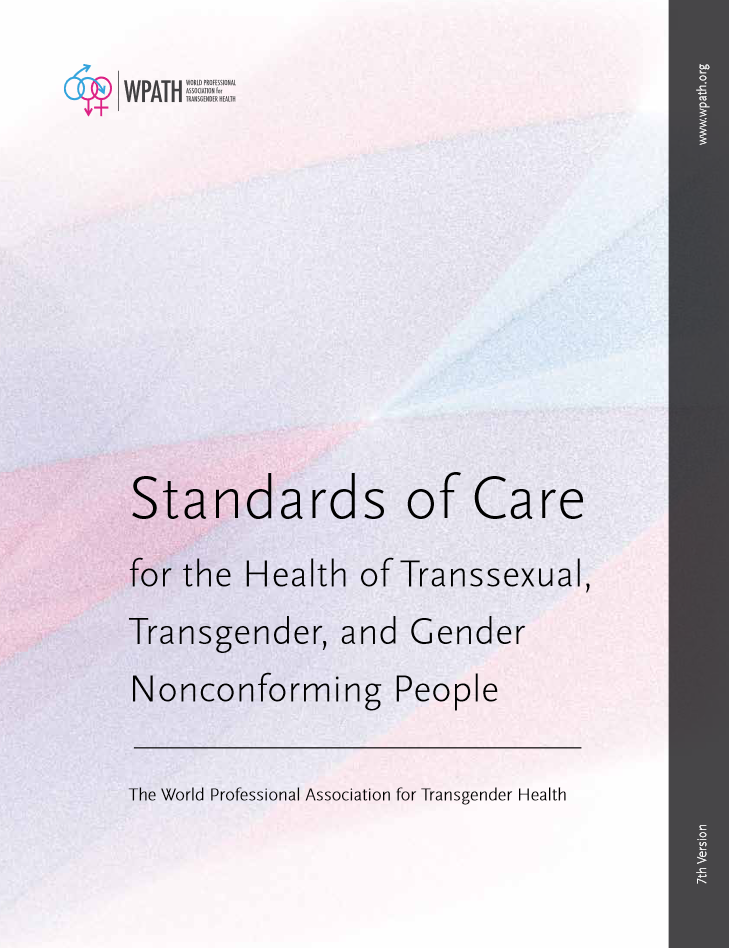
WPATH Standards of Care, v. 7
The World Professional Association for Transgender Health promotes the highest standards of health care for individuals through the articulation of Standards of Care (SOC) for the Health of Transsexual, Transgender, and Gender Nonconforming People. The SOC are based on the best available science and expert professional consensus.
- Filed under
- Transgender Health
Navigating Insurance for Gender-affirming Care
The cost of gender-affirming care such as hormone therapy and gender-affirming surgeries is often a barrier that can stop TGD children and adolescents from accessing lifesaving care. While many major insurance companies cover gender-affirming care, many TGD people remain uninsured or are unable to find coverage for gender-affirming care due to the refusal of some medical insurance companies to cover gender-affirming care. This is an opportunity for providers to be the best advocates for their TGD patients, ease fears, and overcome economic barriers with TGD patients. This section includes resources that can help patients and providers better understand insurance policies and the process of getting coverage for gender-affirming care.
Insurance Considerations for Navigating Gender-affirming Care

Insurance Considerations for Navigating Gender-affirming Care
Cei Lambert, Program Manager for the National LGBT Health Education Center, discusses insurance barriers and navigation solutions for assisting gender diverse patients in accessing gender-affirming care.
- Filed under
- Transgender Health
National Center for Trans Equality – Trans Equality: Know Your Rights in Health Care

National Center for Trans Equality – Trans Equality: Know Your Rights in Health Care
- Filed under
- Patient Education Materials
- Transgender Health
Transgender Legal Defense and Education Fund – Health Insurance Medical Policies: Gender Dysphoria / Gender Reassignment
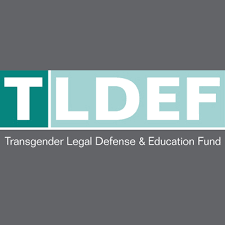
Transgender Legal Defense and Education Fund – Health Insurance Medical Policies: Gender Dysphoria / Gender Reassignment
This page by the Transgender Legal Defense and Education Fund features most major insurance companies policies describing their criteria for adminstering coverage for gender-affirming treatment and procedures.
- Filed under
- Patient Education Materials
- Transgender Health
Gender-affirming Mental Health Care
Mental health care is an important aspect of gender-affirming care for TGD children and adolescents. Transgender and gender diverse identities have historically been and are currently pathologized, and the requirement for a psychiatric diagnosis for TGD patients to receive gender-affirming care often leads to gatekeeping, especially for TGD youth who do not fit into the binary expectations of gender. Furthermore, TGD children and adolescents are more likely to have mental health concerns, related to stigma and discrimination they face. This section provides information to enable providers and behavioral health practitioners to be partners by supporting the mental and gender-affirming care needs of TGD children and adolescents.
Decolonizing Gender: How Mental Health Providers Can Break Out of the Binary
Decolonizing Gender: How Mental Health Providers Can Break Out of the Binary
In this talk from the 2021 Advancing Excellence in Transgender Health conference, Dr. Chang covers how to break out of the binary when approaching behavioral health care for clients.
- Filed under
- Behavioral Health
- Transgender Health
Neurodiversity & Gender-Diverse Youth: An Affirming Approach to Care 2020
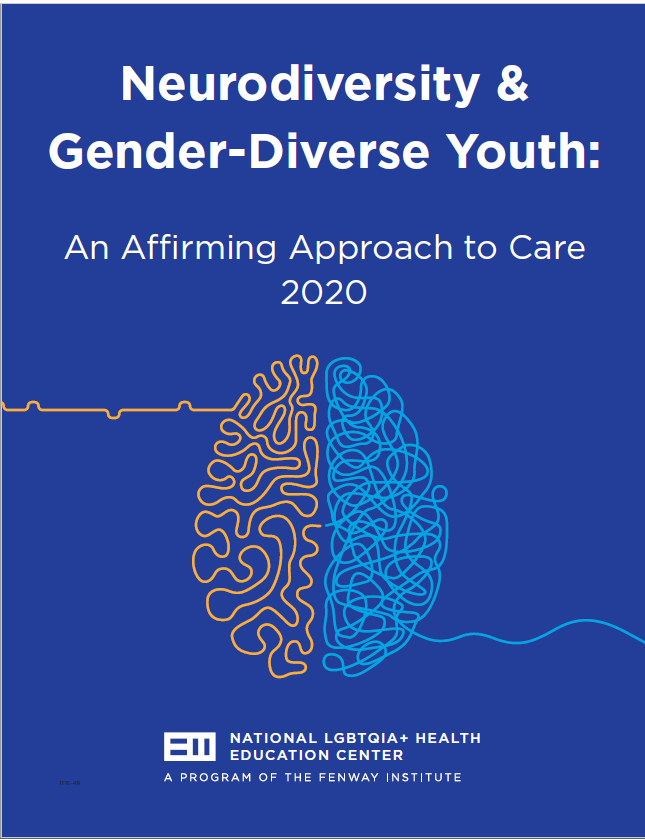
Neurodiversity & Gender-Diverse Youth: An Affirming Approach to Care 2020
This publication provides insight from qualitative research and clinical experience into the unique experience of gender-diverse, neurodiverse youth.
Providing Mental Health Assessments for Gender Affirming Surgery Referral Letters [2020]
Providing Mental Health Assessments for Gender Affirming Surgery Referral Letters [2020]
Providing Mental Health Assessments for Gender Affirming Surgery Referral Letters
In this talk from the 2020 Advancing Excellence in Transgender Health conference, Sarah reviews areas to cover when conducting an assessment of mental health and readiness for gender-affirming surgery referral letter requests. The session is presented through a lens of social justice, and from the perspective of providing trauma-informed and gender-affirming care. Aspects of the client-provider power differential and gatekeeping role are discussed. Participants will learn what questions to include in the assessment and how to ask clients such questions in order to support clients' goal(s) for gender- affirming surgeries, and identify insurance-based eligibility criteria for emotional and practical readiness for gender-affirming surgeries.
- Filed under
- Behavioral Health
- Transgender Health
Template: Gender-affirming Surgery Referral Letter
Template: Gender-affirming Surgery Referral Letter
This is a template that behavioral health providers can use to refer trans and gender diverse patients for gender-affirming surgery.
- Filed under
- Patient Education Materials
- Transgender Health
Improving Mental Health Outcomes for Transgender and Gender Diverse (TGD) Youth through Gender-affirming Care
Improving Mental Health Outcomes for Transgender and Gender Diverse (TGD) Youth through Gender-affirming Care
This webinar is designed to help health centers understand the importance of access to gender affirming care for transgender and gender diverse (TGD) youth. Participants of the webinar will discover current and emerging research on the positive mental health effects of support for gender affirmation, learn best practices for supporting social transition, and discuss resources for helping TGD youth access gender affirming medical care to improve health outcomes.
- Filed under
- LGBTQIA+ Children and Youth
- Transgender Health
Social Determinants of Health (SDOH)
TGD children and adolescents need more than gender-affirming care to support their wellbeing. Multiple factors such as discrimination, minority stress, and homelessness can affect the health and wellbeing of TGD children and adolescents. This section seeks to highlight how social determinants of health, the effects of economic and social factors on the health status of individuals and specific populations, affect LGBTQIA+ patients. While these resources are not all specific to TGD youth, they are integral to understanding the impact of social and economic factors on health outcomes.
LGBTQIA+ Patients and Social Determinants of Health Screening and Documentation
LGBTQIA+ Patients and Social Determinants of Health Screening and Documentation
In this webinar, Dr. Bisola Ojikutu discusses screening for Social Determinants of Health (SDOH) for lesbian, gay, bisexual, transgender, queer, intersex, asexual and other gender minority (LGBTQIA+) patients. Webinar content will focus on SDOH disparities for LGBTQIA+ people, existing screening tools, and their adaptation for culturally affirming screening and referral for LGBTQIA+ people.
Addressing Social Determinants of Health for LGBT People (Part 1)

Addressing Social Determinants of Health for LGBT People (Part 1)
LGBTQIA+ Patients and Social Determinants of Health Screening and Documentation
In this webinar, Sean Cahill, PhD, Director of Policy at The Fenway Institute, will address social determinants of health (SDOH) that can increase the vulnerability of LGBT people to health disparities. These include poverty, homelessness, housing, discrimination, minority stress, incarceration, health care, and education.
- Filed under
- Introduction to LGBTQIA+ Health
Addressing Social Determinants of Health for LGBT People (Part 2)

Addressing Social Determinants of Health for LGBT People (Part 2)
LGBTQIA+ Patients and Social Determinants of Health Screening and Documentation
In the second part of the series, Dr. Cahill will address ways to provide health care to LGBT patients while acknowledging Social Determinants of Health and describe steps that health centers can use to address trauma of LGBT people experiencing health disparities and stigma. The webinar will also address policy solutions that support LGBT people and reduce vulnerability to health disparities.
- Filed under
- Introduction to LGBTQIA+ Health
Supporting Youth and Families
Pediatricians provide essential support for the families that they care for. Caregivers often come to the pediatrician for information about their child’s gender identity and these questions may be difficult to navigate depending on the level of support. While some caregivers may be supportive, others might be dismissive and fearful. TGD children, adolescents, and their families will have a wide range of needs and providers need to be ready to support them. This section provides helpful information to guide providers in that process.
Engaging the Families of Transgender and Gender Diverse Children | 2021
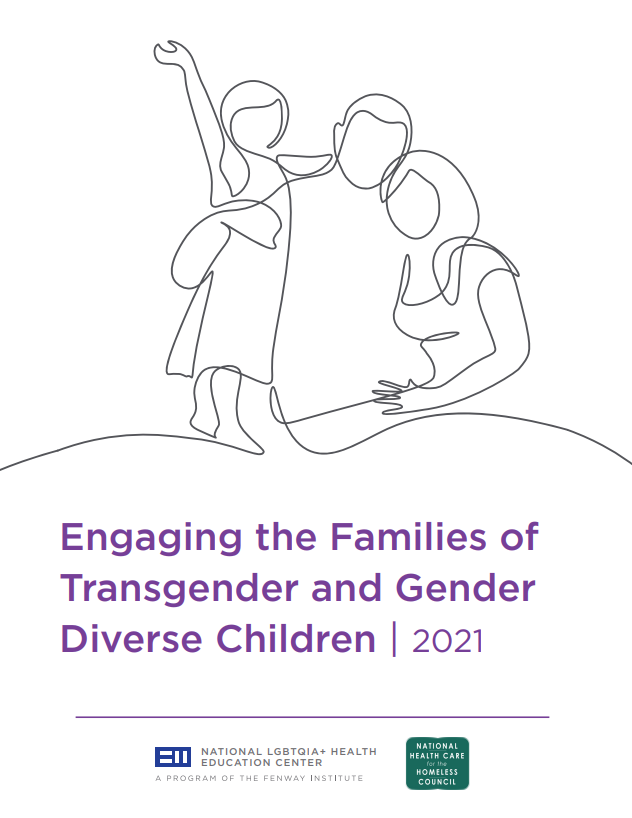
Engaging the Families of Transgender and Gender Diverse Children | 2021
This publication engages pediatric primary care providers, mental health providers, health center administrators and support staff in learning how to actively engage families in the support of their transgender and gender diverse (TGD) children, with the aim of improving the health outcomes for TGD youth. Providers will learn best practices for serving the families of TGD youth, and strategies for successfully providing resources and referrals in response to a variety of family and patient needs and priorities.
- Filed under
- LGBTQIA+ Children and Youth
- Transgender Health
Engaging Families of Transgender and Gender Diverse Youth
Engaging Families of Transgender and Gender Diverse Youth
In this webinar, participants will learn strategies for engaging families and caregivers in supporting transgender and gender diverse (TGD) children and youth. Webinar attendees will explore best and promising practices for implementing interventions in order to decrease family rejection, improve physical and mental health outcomes, and ensure safe and stable housing for TGD youth.
- Filed under
- LGBTQIA+ Children and Youth
- Transgender Health
Sexual Orientation and Gender Identity (SOGI) Data Collection
Many providers struggle with how to collect sexual orientation and gender identity (SOGI) information in a respectful way and answer the questions that may arise when they attempt to do so. This section provides information that providers can use when collecting SOGI data.
Ready, Set, Go! Guidelines and Tips For Collecting Patient Data on Sexual Orientation and Gender Identity (SOGI) – 2022 Update
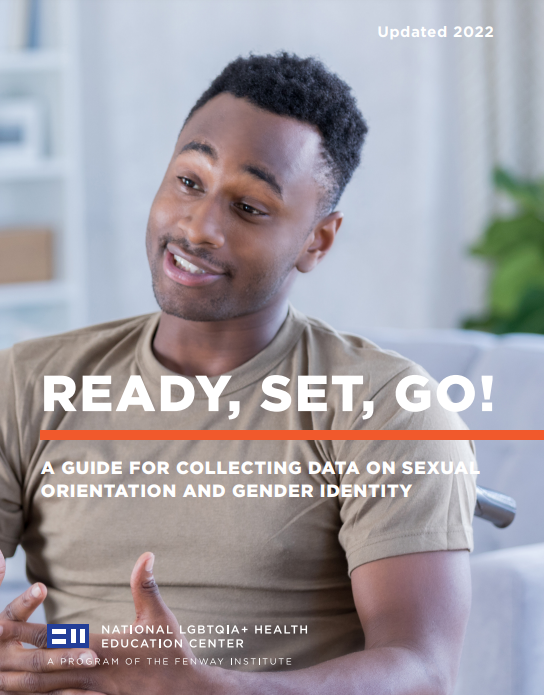
Ready, Set, Go! Guidelines and Tips For Collecting Patient Data on Sexual Orientation and Gender Identity (SOGI) – 2022 Update
This guide was designed to help health centers and other health care organizations successfully collect sexual orientation and gender identity (SOGI) data and document the data into the electronic health record (EHR). For those just beginning the process, this guide can be used from start to finish. If you already have a system, but have encountered challenges and questions, this guide can help you address them. Even if your system is working smoothly, you will find resources and recommendations here that will help you move to the next level of data collection and analysis.
Collecting Sexual Orientation and Gender Identity (SOGI) Data (Fall 2020)
Collecting Sexual Orientation and Gender Identity (SOGI) Data (Fall 2020)
In this webinar, Chris Grasso, Vice President for Health Informatics and Data Services and Mason Dunn, Deputy Director for the Division of Education and Training at Fenway Health, discuss best practices for health centers to collect patient Sexual Orientation and Gender Identity (SOGI) data and document SOGI in electronic health records. The training will focus on analyzing and using SOGI data for clinical decision-making and monitoring health disparities, and if, when, and how the collection and analysis of employee SOGI data can inform practices in HR, including policies for hiring, onboarding and retention.
Collecting Gender Identity Data in EHRs
Collecting Gender Identity Data in EHRs
In this talk from the 2021 Advancing Excellence in Transgender Health conference, Chris Grasso and Juwan Campbell discuss the importance of and how to collect gender identity data in EHRs.
Intersectionality
TGD children and adolescents are more than just their transgender identities. Like everyone, TGD children and adolescents have intersecting identities impacting the stigma and bias they experience, which should be considered when providing care. This section provides resources that highlight the effects of intersecting identities on LGBTQIA+ people.
Addressing Implicit and Unconscious Bias
Addressing Implicit and Unconscious Bias
Addressing Unconscious and Implicit Bias
In this talk from the 2020 Advancing Excellence in Transgender Health conference, Cei Lambert focuses particularly on provider bias and power dynamics and how bias shows up for transgender and gender-diverse clients.
- Filed under
- Organizational Change
- Transgender Health
Addressing Social Determinants of Health for Black LGBTQ People
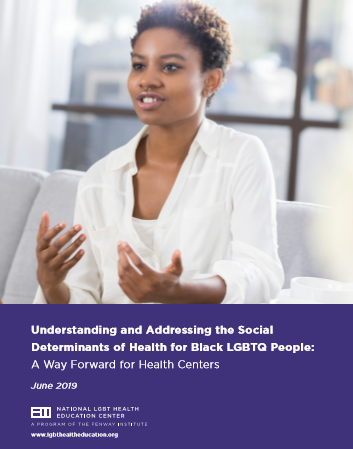
Addressing Social Determinants of Health for Black LGBTQ People
- Filed under
- Behavioral Health
- LGBTQIA+ People of Color
Addressing Social Determinants of Health among LGBTQ Latinx Young Adults
Addressing Social Determinants of Health among LGBTQ Latinx Young Adults
Latino(a) youth and young adult men who have sex with men or who identify as lesbian, gay, bisexual, and/or transgender often face stigma, discrimination, and language barriers that prevent them from accessing prevention and treatment at health care centers, and leaving them vulnerable to high rates of HIV and other health disparities. In this session, panelists Suyanna Linhales Barker, DrPH; Manuel Diaz-Ramirez, and Alexa Rodriguez, all from La Clinica del Pueblo, will discuss the social determinants of health that create barriers to prevention and care for young adult Latino(a)s. The panelists will draw on their experiences working with this population, including young Latinos living with HIV, and transgender latino(a)s in the Washington, DC area to give participants the tools to recognize barriers within their own organizations to better facilitate prevention and care opportunities for transgender and MSM Latino young adults.
Centering Safety: Partnering with Black Transgender and Gender Diverse (TGD) Communities to Promote Wellness
Centering Safety: Partnering with Black Transgender and Gender Diverse (TGD) Communities to Promote Wellness
This panel-style webinar will explore the topic of safety for Black and African American transgender and gender diverse people. Expert panelists will provide insight into how health centers can partner with communities to promote safety and wellness, and to examine the role of structural and institutional violence as a social determinant of health. Participants will learn strategies for mitigating risk by identifying and supporting individual and community-level protective factors and strengths.
- Filed under
- LGBTQIA+ People of Color
- Transgender Health
Organizational Change and Policy
TGD children and youth need environments that are safe and affirm their identities. While providers play an essential role in that process, all aspects of a health center must be assessed to determine methods that can be employed to increase accessibility for TGD children, adolescents, and their families. This section includes information that health centers can utilize to review their systems and practices.
Creating a Transgender Health Program at Your Health Center
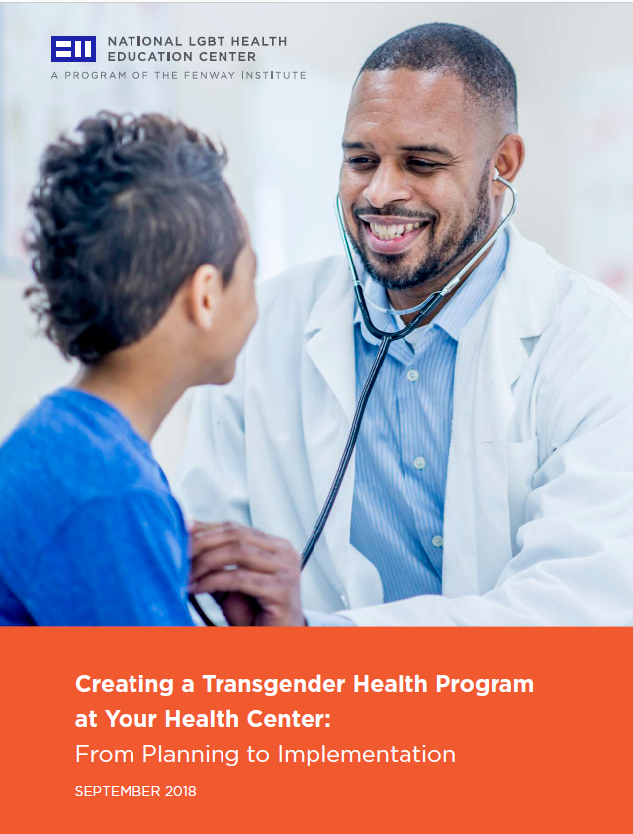
Creating a Transgender Health Program at Your Health Center
In this guide, we provide a framework for building a health program for transgender and gender diverse patients at your health center. There is no "one size fits all" approach to this work, but there are certain building blocks from which to create your own program that supports the gender diverse people in your community.
- Filed under
- Organizational Change
- Transgender Health
Pre-Conference – Creating an Inclusive and Welcoming Environment
Pre-Conference – Creating an Inclusive and Welcoming Environment
In this talk from the 2021 Advancing Excellence in Transgender Health conference, Dr. Keuroghlian discusses ways to create an inclusive and welcoming environment at your health center, clinic or institution.
Engaging Leadership and Organizational Change
Engaging Leadership and Organizational Change
This is a discussion based session from the 2020 Advancing Excellence in Transgender Health conference, designed to encourage attendees to take knowledge gained from the conference and prepare to apply this to their own care settings. Fenway Health will be used as a case study for discussion, and attendees are welcome to bring their own initiatives to workshop.
- Filed under
- Organizational Change
Focus on Forms and Policy: Creating an Inclusive Environment for LGBT Patients
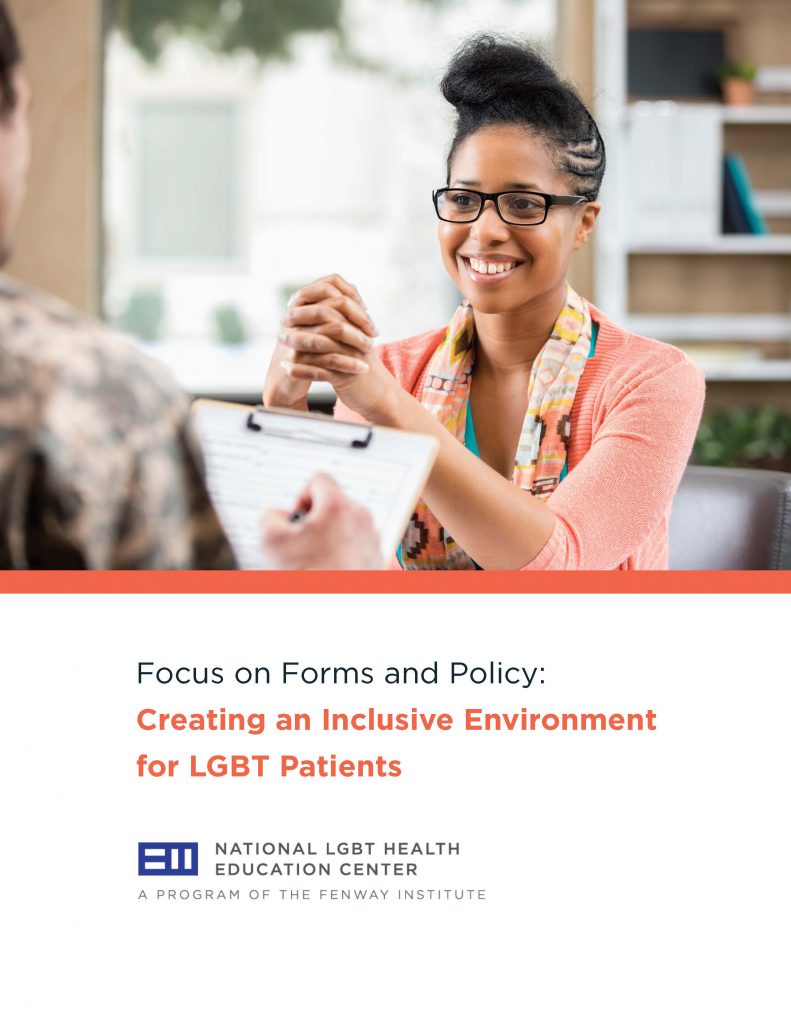
Focus on Forms and Policy: Creating an Inclusive Environment for LGBT Patients
Lesbian, gay, bisexual, and transgender (LGBT) people come from all walks of life and experience many of the same health problems as non-LGBT people. This means that every organizational policy and procedure may impact the experience of LGBT people. To create an LGBT-affirming and inclusive environment, it is important to examine policies and procedures. This publication reviews some common updates to organizational forms and polices to create an affirming and inclusive environment for LGBT patients, and reviews strategies to modify procedures, behavior, and language to be inclusive of all patients.
- Filed under
- Organizational Change

